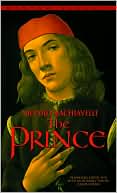Category Books
- Fiction Books & Literature
- Graphic Novels
- Horror
- Mystery & Crime
- Poetry
- Romance Books
- Science Fiction & Fantasy
- Thrillers
- Westerns
- Ages 0-2
- Ages 3-5
- Ages 6-8
- Ages 9-12
- Teens
- Children's Books
- African Americans
- Antiques & Collectibles
- Art, Architecture & Photography
- Bibles & Bible Studies
- Biography
- Business Books
- Christianity
- Computer Books & Technology Books
- Cookbooks, Food & Wine
- Crafts & Hobbies Books
- Education & Teaching
- Engineering
- Entertainment
- Foreign Languages
- Game Books
- Gay & Lesbian
- Health Books, Diet & Fitness Books
- History
- Home & Garden
- Humor Books
- Judaism & Judaica
- Law
- Medical Books
- New Age & Spirituality
- Nonfiction
- Parenting & Family
- Pets
- Philosophy
- Political Books & Current Events Books
- Psychology & Psychotherapy
- Reference
- Religion Books
- Science & Nature
- Self Improvement
- Sex & Relationships
- Social Sciences
- Sports & Adventure
- Study Guides & Test Prep
- Travel
- True Crime
- Weddings
- Women's Studies
The Prince (Donno Translation) » (Reissue)

Authors: Niccolo Machiavelli, Daniel Donno (Editor), Daniel Donno
ISBN-13: 9780553212785, ISBN-10: 0553212788
Format: Mass Market Paperback
Publisher: Random House Publishing Group
Date Published: August 1984
Edition: Reissue
Author Biography: Niccolo Machiavelli
Niccolò Machiavelli (1469-1527) was born in Florence. He served the Florentine republic as secretary and second chancellor, but was expelled from public life when the Medici family returned to power in 1512. His other works include The Discourses, The Art of War, and the comic satire The Mandrake.
Peter Constantine is the recipient of a PEN Translation Prize and a National Translation Award. His Modern Library translations include The Essential Writings of Machiavelli, Voltaire’s Candide, and Tolstoy’s The Cossacks. He lives in New York City.
Albert Russell Ascoli is Gladys Arata Terrill Distinguished Professor of Italian Studies at the University of California, Berkeley, and was awarded the Rome Prize for study at the American Academy in Rome.
Book Synopsis
The book has been variously described as the first to analyze the role of the political elite; as the one that established the independence of politics from theology; as an early formulation of the political 'myth' required to galvanize apolitical masses into revolutionary action; as a practical rule-book containing timeless precepts for the diplomat; and, most frequently, as the handbook of evil. Based upon Machiavelli's firsthand experience as an emissary of the Florentine Republic to the courts of Europe, The Prince analyzes the often-violent means by which political power is seized and retained, and the circumstances in which it is lost. Above all, it provides a remarkably uncompromising picture of the true nature of power, no matter in what era or by whom it is exercised.
Table of Contents
| Chronology | ||
| Map | ||
| Introduction | ||
| Translator's Note | ||
| Selected Books | ||
| Machiavelli's Principal Works | ||
| Letter to the Magnificent Lorenzo de Medici | 1 | |
| I | How many kinds of principality there are and the ways in which they are acquired | 5 |
| II | Hereditary principalities | 5 |
| III | Composite principalities | 6 |
| IV | Why the kingdom of Darius conquered by Alexander did not rebel against his successors after his death | 13 |
| V | How cities or principalities which lived under their own laws should be administered after being conquered | 16 |
| VI | New principalities acquired by one's own arms and prowess | 17 |
| VII | New principalities acquired with the help of fortune and foreign arms | 20 |
| VIII | Those who come to power by crime | 27 |
| IX | The constitutional principality | 31 |
| X | How the strength of every principality should be measured | 34 |
| XI | Ecclesiastical principalities | 36 |
| XII | Military organization and mercenary troops | 39 |
| XIII | Auxiliary, composite, and native troops | 43 |
| XIV | How a prince should organize his militia | 47 |
| XV | The things for which men, and especially princes, are praised or blamed | 49 |
| XVI | Generosity and parsimony | 51 |
| XVII | Cruelty and compassion; and whether it is better to be loved than feared, or the reverse | 53 |
| XVIII | How princes should honour their word | 56 |
| XIX | The need to avoid contempt and hatred | 58 |
| XX | Whether fortresses and many of the other present-day expedients to which princes have recourse are useful or not | 67 |
| XXI | How a prince must act to win honour | 71 |
| XXII | A prince's personal staff | 75 |
| XXIII | How flatterers must be shunned | 76 |
| XXIV | Why the Italian princes have lost their states | 78 |
| XXV | How far human affairs are governed by fortune, and how fortune can be opposed | 79 |
| XXVI | Exhortation to liberate Italy from the barbarians | 82 |
| Glossary of Proper Names | 86 | |
| Notes | 99 |
Subjects
 Philosophy
Philosophy  Major Branches of Philosophical Study
Major Branches of Philosophical StudyNonfiction
 Philosophy
Philosophy  Renaissance & Modern Philosophy
Renaissance & Modern PhilosophyPhilosophy
 Major Branches of Philosophical Study
Major Branches of Philosophical Study  Political Philosophy
Political PhilosophyPhilosophy
 Renaissance & Modern Philosophy
Renaissance & Modern Philosophy  Renaissance Philosophy
Renaissance PhilosophyPolitical Books & Current Events Books
 All Politics
All Politics  Political Theory & Ideology
Political Theory & IdeologyNonfiction
 Politics & Current Affairs
Politics & Current Affairs  All Politics
All Politics
